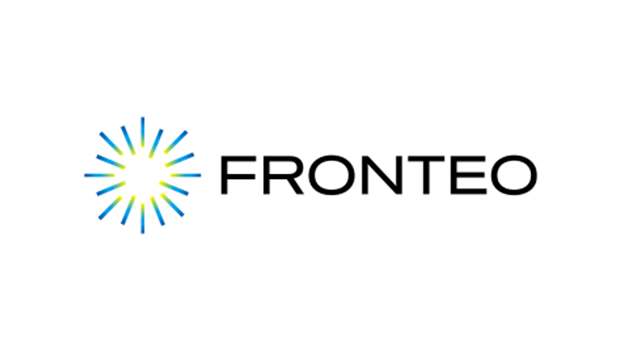Korea’s “Act On Prevention of Divulgence and Protection of Industrial Technology” & National Core Technologies List
South Korea’s meteoric rise as a global technology power, as represented in the above chart, understandably drew government concern of international technology theft or leakage, culminating in the passage of Korea’s Act On Prevention of Divulgence and Protection of Industrial Technology in 2011. The purpose of this Act was to prevent undue divulgence of technology, strengthen the competitiveness of Korean industries, and aid Korea’s national security and development of its economy. Additionally, this Act established Korea’s National Core Technology list (NCT), which included designated technology that, if leaked or stolen, could have a detrimental effect on the economy and national security.
Currently, two Korean statutes govern the outflow/export of technology:
- The Foreign Trade Law ("FTL") which regulates "Strategic Technology" controlled under multinational strategic materials export control regimes, such as the Wassenaar Arrangement, the Nuclear Suppliers Group, etc.
- The Act on Prevention of Leakage and Protection of Industrial Technology ("ITA"), which regulates National Core Technologies.
The Ministry of Industry, Trade and Energy ("MOTIE") is the primary government agency responsible for administering both laws and reviewing all requests from NCT exporters to:
(i) receive export approval if the related technology was the result of R&D supported by government funding, or
(ii) declare the export if technology was the result of R&D without government funding.
If an NCT subject to export approval or declaration is improperly exported (e.g., without required approval; via incorrect procedures; without export declaration; using a false declaration, etc.), MOTIE may suspend or prohibit the export, or order "restoration to the original state" (e.g., revoking export contract). Violators of the ITA could be subject to criminal prosecution with a maximum penalty of 15 years in prison or KRW 1.5 billion (approximately USD 1,150,000) in fines. This Act is precisely why it is critical for legal teams that manage matters with data originating or residing in Korea to refer to the current NCT list and take necessary precautions to confirm full compliance with Korea’s export control laws.
Korea Revises Its Technology Protection Strategy
The Korean government’s approach to safeguarding national core technologies has evolved in response to technological advancements and trends since 2011. Most recently, Korea has decided to take a more proactive approach in remaking its policy framework in support of a revised set of global technology protection policies.
On December 23, 2021, the Korean government announced its Technology Protection Strategy under Global Competition for Technology Hegemony ("Protection Strategy"), recognizing the growing importance to its economy and national security of securing core technologies and supply chain infrastructure. According to the Protection Strategy, the government will seek to integrate various protection measures previously established and implemented by different government ministries into a single unified "Korean technology protection strategy." This strategy signals the government's commitment to mobilize its ministries preemptively and strategically in response to unlawful attempts at accessing Korea's core technologies.
The Protection Strategy aims to strengthen the competitiveness of Korean industries through ITA amendments proposals that contain key objectives such as:
- Establishment of a proactive protection system for core technologies that will:
a) ExpaExpand new designations of core technologies and implement a "sunset" system to revoke prior designations.
b) Introduce a system for registering institutions possessing National Core Technology to prevent unauthorized export of technologies, unapproved M&As by foreign entities, evasion of NCT declaration, and failures to undergo compliance audits.
c) Expand the scope of application to include M&As involving foreign companies to prevent technology theft.
- Retain key personnel and establish a virtuous cycle of human resources. To prevent leakage of National Core Technology experts and technology the government plans to:
a) Establish a database of National Core Technology experts;
b) Encourage and incentivize the long-term service of core personnel; and
c) Establish measures to prevent the exploitation of technology by foreign experts.
- Strengthen cooperation among ministries and cooperation for international trade in technology by:
a) Establishing a center for reporting leakage and infringement;
b) Jointly announcing mid- and long-term technology protection plans for each ministry; and
c) Comprehensively improving cooperation for technology trade across semiconductor, investment assessment, ICT, energy, and other fields, in accordance with the Korea-U.S. Summit Agreement.
Due to intensifying global competition for technology control, and the Korean government’s steadfast commitment to prevent leakage of core Korean technologies, companies that handle designated core technologies in Korea are strongly advised to monitor amendments to relevant laws and regulations (e.g., export control laws).
In addition to these amendment proposals, a new Act on Special Measures for Strengthening and Protecting the Competitiveness of the National High-Tech Strategic Industry ("Special Act") took effect on August 4, 2022. Under this Special Act, specific technologies will be newly designated and protected as "National High-Tech Strategic Technology” if they:
(i) have a significant impact on national and economic security;
(ii) have growth potential, technical difficulty and industrial importance, and
(iii) have a significant ripple effect on related industries,
The government will provide a package of support to companies that provide products or services based on National High-Tech Strategy Technology, or industries that research, develop or commercialize National High-Tech Strategic Technologies, which will include expedited processing of governmental approvals or licenses, priority support for industrial infrastructure, rapid processing of administrative complaints, funding and tax benefits.
Tax benefits under the Special Act are linked to the amended Restriction of Special Taxation Act ("Special Taxation Act") that took effect on January 1, 2023. Under the Special Taxation Act, certain technologies were newly designated as "National Strategic Technology," and will yield tax benefits to their corresponding companies. Below is a chart with high-level details that illustrate the impact all current policies have on Korea’s National Core Technologies.
